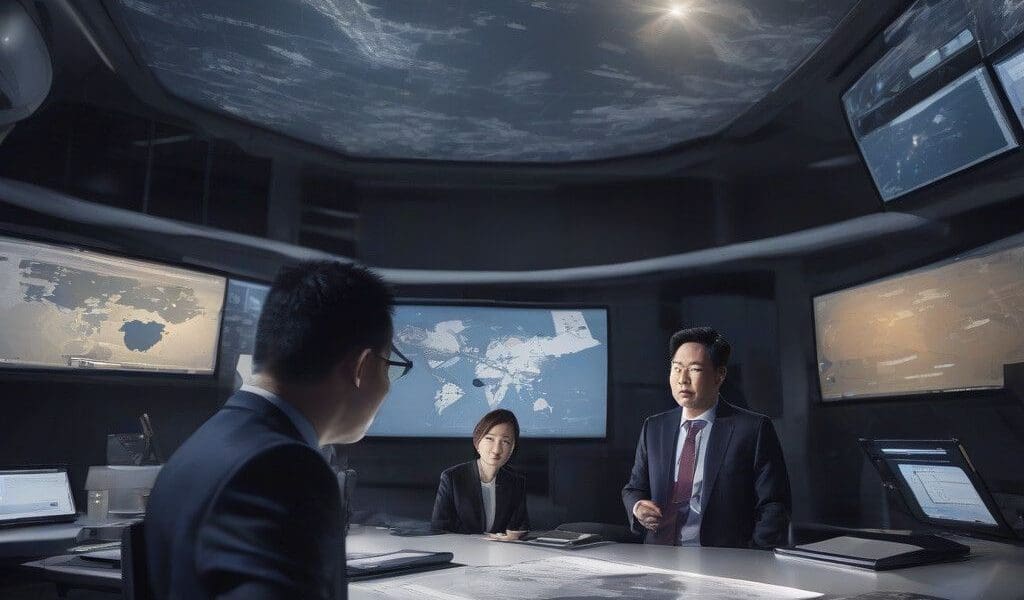SpaceX's Strategic Shift: Taiwanese Partners Relocate Amid Geopolitical Tensions
SpaceX, the aerospace giant spearheaded by Elon Musk, is adopting a proactive approach in response to rising tensions between China and Taiwan. The company is urging its Taiwanese suppliers to relocate their manufacturing operations to mitigate risks linked to the increasingly precarious geopolitical landscape. This strategic move signifies a broader trend of companies reassessing their supply chain strategies in light of regional instability.
The backdrop for this transition is the heightened military activities by China around Taiwan, which have prompted concerns among businesses reliant on Taiwanese manufacturing. Notably, companies like Chin-Poon Industrial and Wistron NeWeb Corporation (WNC) have confirmed that SpaceX requested them to shift parts of their production to safer locales such as Vietnam and Thailand. This transition not only reflects SpaceX’s commitment to secure its supply chain but also highlights the urgent need for technology firms to insulate themselves from geopolitical uncertainties.
One prominent example is WNC’s recent decision to expand its production of network equipment for SpaceX’s Starlink project in Vietnam. The company is doubling its workforce there, which illustrates both the scale and speed of this shift. Similarly, Universal Microwave Technology is following suit by investing in new factories in Southeast Asia, emphasizing its commitment to diversifying operations. Shenmao Technology, another key player, is making a substantial investment of $5 million to establish a unit in Vietnam, further underpinning the regional manufacturing shift.
These decisions are not made in isolation. Taiwanese technology firms are increasingly seeking to diversify their operations away from Taiwan, aiming to create a buffer against any potential disruptions arising from geopolitical factors. This pivot underscores a significant trend in high-tech industries where stability is paramount. Southeast Asia is emerging as a key alternative for production, offering a relatively secure environment for companies traditionally hinged on Taiwanese manufacturing.
SpaceX’s approach is particularly noteworthy given Musk’s previously controversial remarks regarding Taiwan. His statement from last year, labeling Taiwan as an “integral part” of China, provoked a strong backlash from the Taiwanese government. This incident exemplified the delicate balancing act companies must navigate in their international operations, especially when geopolitical sentiments are in flux.
The implications of this shift extend beyond the immediate operational adjustments of individual companies. As Taiwanese suppliers relocate, this movement may also inspire other international firms to reconsider their own dependency on Taiwan-based manufacturing. Given that Taiwan has long been a vital hub for high-tech manufacturing, particularly in semiconductor production, the potential for a widespread migration of tech firms is a significant concern for the island’s economic future.
Moreover, the ongoing reshaping of supply chains could lead to transformative shifts in regional manufacturing landscapes. Countries within Southeast Asia stand to benefit from increased investments from Taiwanese companies, which may spur local economic growth and job creation. In addition, as companies prioritize diversification, the operational ecosystems of these nations could strengthen, reinforcing their global competitiveness.
This scenario serves as a compelling case study in the nexus of geopolitics and business strategy. Companies like SpaceX are not only reshaping their operational models but also influencing broader market trends by prioritizing stability and security in supply chains. As geopolitical tensions escalate, the actions taken by major firms will likely set precedents for the entire industry.
In conclusion, SpaceX’s strategic decision to encourage Taiwanese partners to relocate is emblematic of a larger trend where geopolitical realities force businesses to reevaluate their operational frameworks. This is not merely about manufacturing; it’s about securing a stable future in an unpredictable global landscape. The shift serves as a reminder that in today’s interconnected world, businesses must remain agile and foresighted to weather the storms of political uncertainty.








